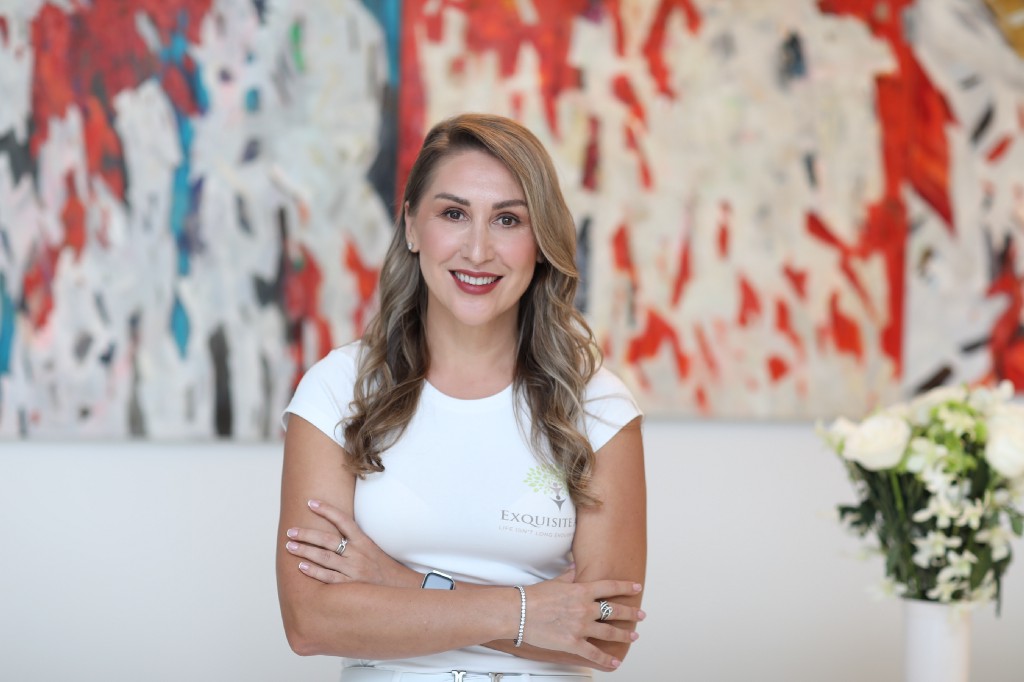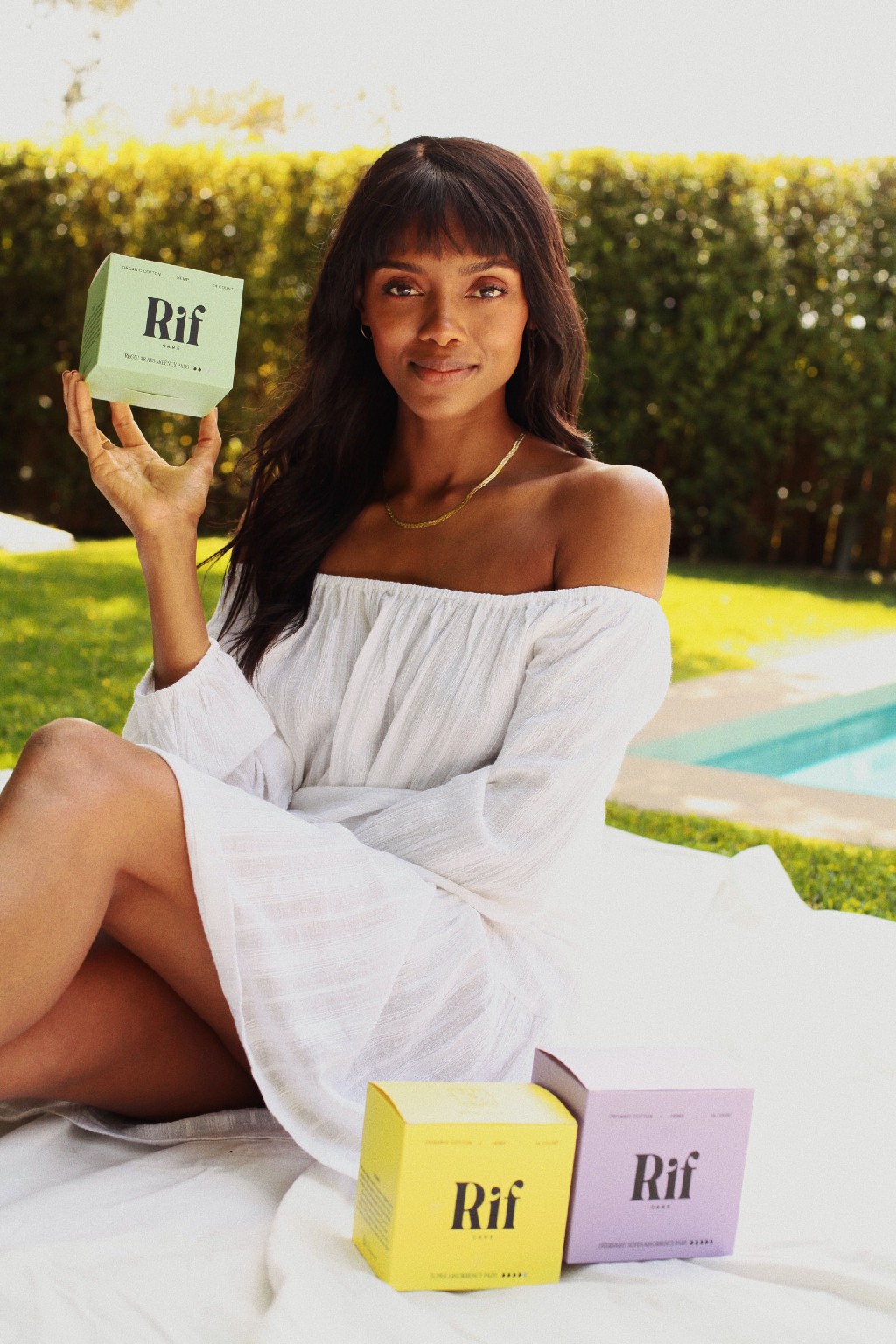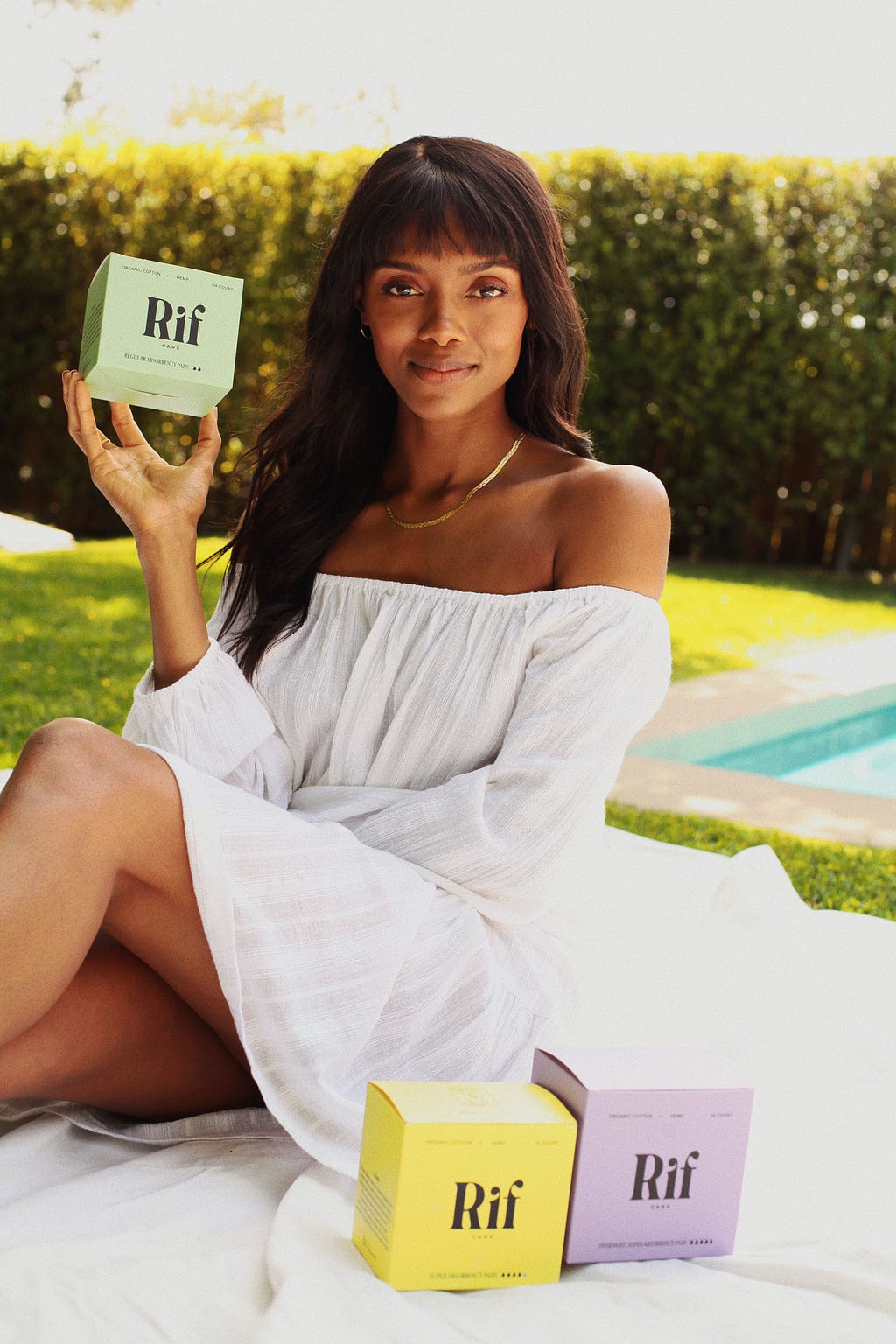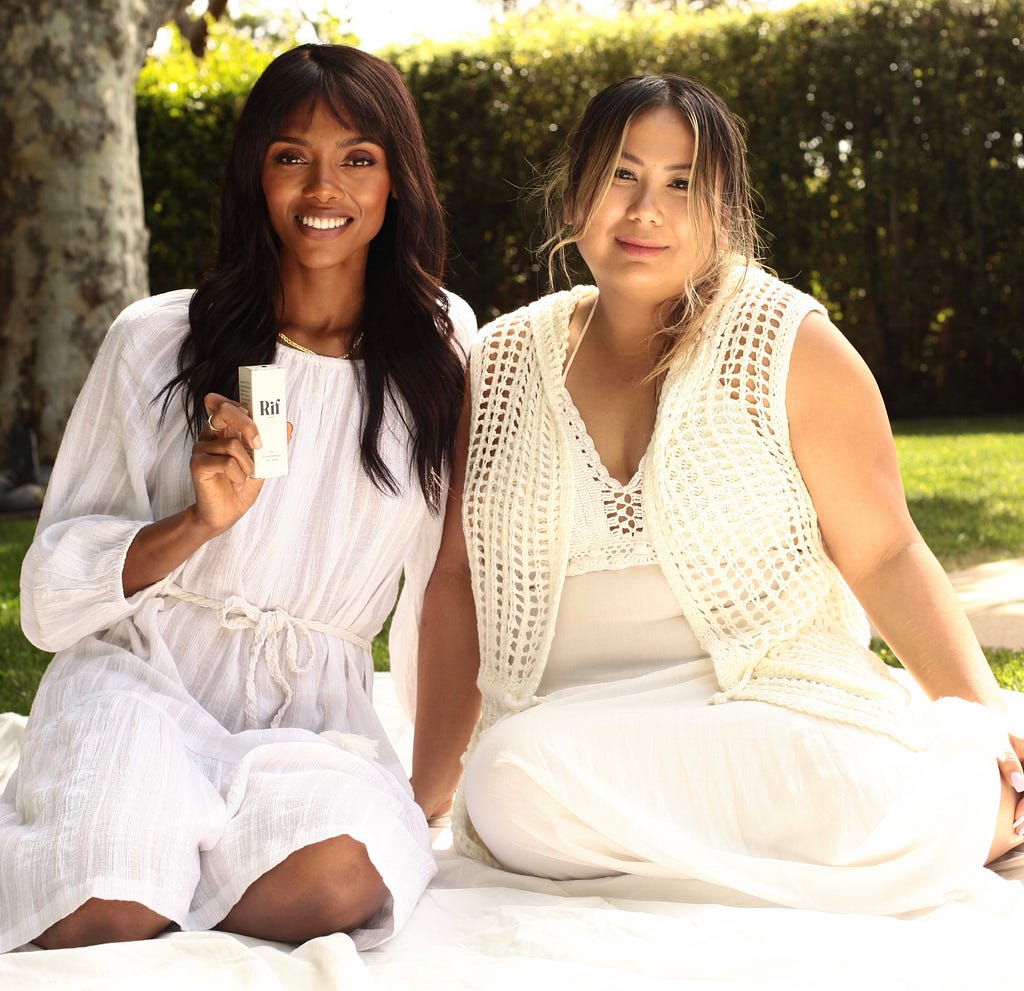Female Founders: Livette Dikalenko of Exquisite Art On The Five Things You Need To Thrive and Succeed as a Woman Founder
An Interview With Candice Georgiadis
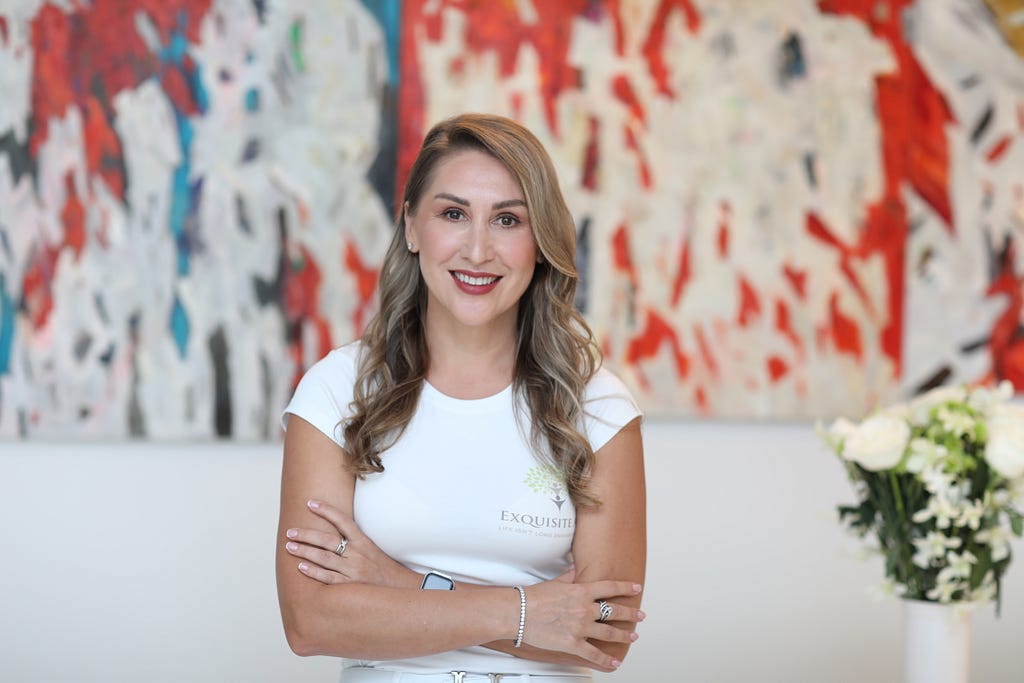
Learn how to delegate and guide — As someone who spearheads a business, we often tend to take on a lot of the workload ourselves. This is a big no-no as eventually it will result in burn-out, and loss of motivation. It’s important to learn how to trust your team, so that you can effectively delegate roles and responsibilities. Similar to the leap of faith we took when starting out our business, we need to take that small leap of faith in the people we work with as well.
As a part of our series about “Why We Need More Women Founders”, I had the pleasure of interviewing Livette Dikalenko.
A self-made businesswoman with a passion for bringing art of international status to Singapore, Livette Dikalenko is the Founder of Exquisite Art — an online art gallery that aims to give artists, especially those from Central Asia, a platform to sell their one-of-a-kind work on an international level. It was shortly after this move that Livette’s boundless entrepreneurial spirit guided her to conceptualise Exquisite Art — an online art gallery that aims to give artists, especially those from Central Asia, a platform to sell their one-of-a-kind work on an international level.
Thank you so much for doing this with us! Before we dig in, our readers would like to get to know you a bit more. Can you tell us a bit about your “backstory”? What led you to this particular career path?
It all began when I was living in my hometown of Almaty, Kazakhstan. Kazakhstan possesses a diverse cultural tapestry, so I was able to interact with people from many different nationalities, learning and celebrating the traditions of others from an early age.
These experiences drove me to pursue a degree in International Economic Relations from the University of International Business, Almaty, Kazakhstan; having always been fascinated by different cultures and geopolitics, I felt compelled to centre my studies on this interest.
I went on to pursue roles in logistics and sales, before deciding that I needed something more; I wanted to weave my passions into my career. I love art. I love culture. I love the possibility of connecting people from different cultures and the possibility to discover something new.
With this, I took a huge leap of faith in 2016; emboldened by my love for Singapore’s cultural values and burgeoning art scene, I decided to uproot my life and settle here. Then, I founded Exquisite Art, an online art gallery, to showcase the beauty and rich culture of art from all over the world.
Can you share the most interesting story that happened to you since you began leading your company?
It might sound strange, but the pandemic was actually a very interesting time for Exquisite Art. People found themselves relying on the internet (more so than ever before!) for connection and discovery. As such, we saw an influx of new customers visiting the Exquisite Art website, as well as more artists reaching out to us to learn more about the platform and how they could work with us to showcase their works to a broader international audience.
I spent many hours speaking to all sorts of fascinating people from around the world, and many of the artists who are currently showcased on the Exquisite Art online gallery were discovered during this period.
Can you share a story about the funniest mistake you made when you were first starting? Can you tell us what lesson you learned from that?
I thought that being my own boss would give me freedom to choose who I worked with and decide my own working hours.
However, like many entrepreneurs, I found myself constantly prioritising work over play. I certainly was not working fewer hours than I had been during my early career, as I was so focused on ensuring Exquisite Art was a success. However, I realized that I needed to strike a balance to ensure my own wellbeing.
Lesson learnt: Finding out how to achieve work-life balance is tricky, but it’s also essential to ensuring continued success.
None of us are able to achieve success without some help along the way. Is there a particular person who you are grateful towards who helped get you to where you are? Can you share a story about that?
Leaving my hometown and moving to a foreign country posed several challenges initially and was (naturally!) quite nerve-racking. However, I was delighted to find that Singapore’s art community is kind and generous, and many of the people I have met at various art fairs and exhibitions have become lifelong friends.
I also must share my appreciation for the wonderful artists I have the pleasure of representing. Without them, Exquisite Art simply would not exist, and I am grateful every day for the inspiration I find through my conversations with these talents.
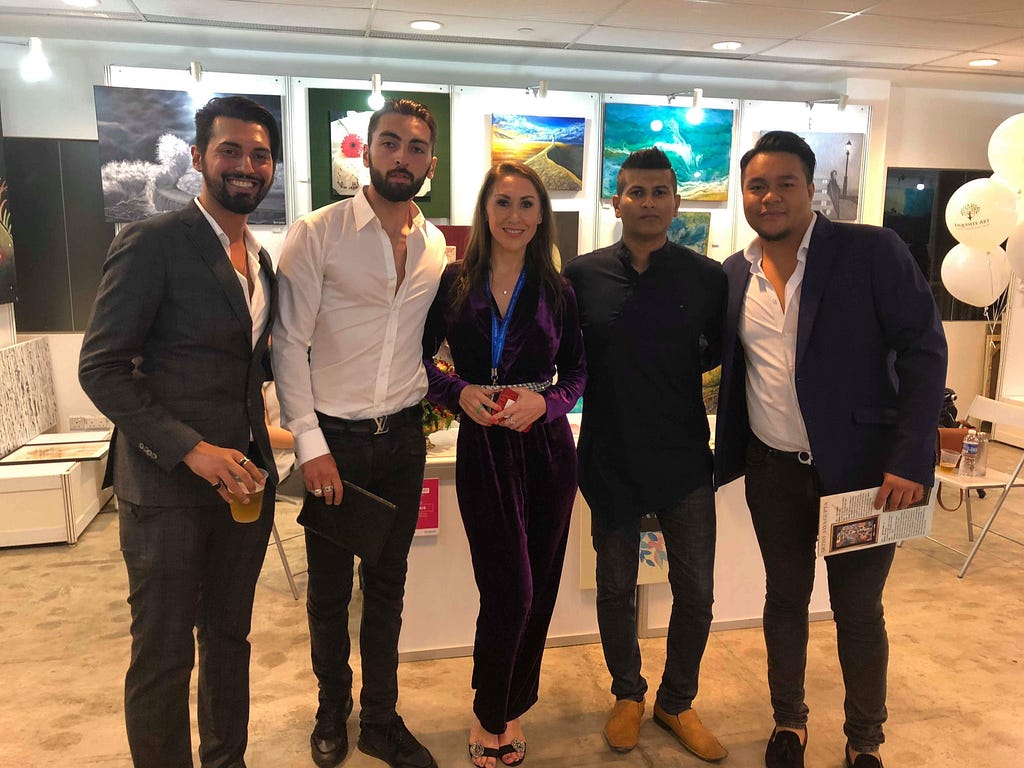
Ok, thank you for that. Let’s now jump to the primary focus of our interview. According to this EY report, only about 20 percent of funded companies have women founders. This reflects great historical progress, but it also shows that more work still has to be done to empower women to create companies. In your opinion and experience what is currently holding back women from founding companies?
It’s truly inspiring to see so many more female-founded companies, but, as you mention, there is a lot of work still to be done.
It is my belief that there is a general lack of confidence when it comes to taking the leap and starting a business. However, as the number of female founders continues to grow, the confidence gap is closing as women feel inspired by the success of others.
Can you help articulate a few things that can be done as individuals, as a society, or by the government, to help overcome those obstacles?
I feel we should continue to loudly celebrate the success of all women. As mentioned, there is inspiration to be found from successful female founders, so sharing experiences is key.
Early childhood support is a passion of mine (more on this later), and I also think there’s a lot we can do to empower children from an early age to follow their hopes and dreams.
This might be intuitive to you as a woman founder but I think it will be helpful to spell this out. Can you share a few reasons why more women should become founders?
Female founders are currently in the minority, which is why we need to encourage more women to start their own businesses. I’m a firm believer in the power of diversity. With contributions from people from different genders, races, and nationalities, society will become a much more powerful and harmonious place.
What are the “myths” that you would like to dispel about being a founder? Can you explain what you mean?
Many people have the perception that working for yourself means a free and easy schedule. However, it’s actually the opposite, as I find myself in constant ‘work mode’ even when I take much-needed vacations. Being a founder means being on call 24–7 whenever your company needs you
The second myth is that entrepreneurs always fund their businesses with money from investors. This isn’t true. Most entrepreneurs, like myself, spend their own hard-earned savings to start their business, taking a great risk. This is one of the many reasons we are so dedicated to making sure the company is a success.
Is everyone cut out to be a founder? In your opinion, which specific traits increase the likelihood that a person will be a successful founder and what type of person should perhaps seek a “regular job” as an employee? Can you explain what you mean?
Not everyone can be a founder. Being a founder is not just a job, it comprises several roles and responsibilities; I would say it’s akin to being a parent.
Founders must be able to manage both themselves and their team. They must be motivational, ensuring the continued passion, positivity, and wellbeing of their team members. Another important trait is the ability to sometimes accept that someone else might do something differently to you. Learning to recognize the strengths of your team is key to success.
Finally, Founders require unrelenting drive to continue waking up each morning with the determination to make a difference.
Ok super. Here is the main question of our interview. What are your “5 Things I Wish Someone Told Me Before I Started” and why? (Please share a story or example for each.)
1. Learn how to delegate and guide
As someone who spearheads a business, we often tend to take on a lot of the workload ourselves. This is a big no-no as eventually it will result in burn-out, and loss of motivation. It’s important to learn how to trust your team, so that you can effectively delegate roles and responsibilities. Similar to the leap of faith we took when starting out our business, we need to take that small leap of faith in the people we work with as well.
2. Sometimes you will have to make the decision to put yourself before your business.
After founding your business, it’s normal to find that you’re always putting your business first above yourself. However, it’s important to make time for yourself sometimes, too.
3. Don’t be afraid to say NO.
It can be easy to feel as though you have to say yes to everything, however, much like making time for yourself, it’s important to learn when to say no — be it to people, opportunities, or invitations.
4. Don’t expect your friends to be your clients and to always support you.
Mixing personal contacts and business can be tricky. Starting your customer base from your circle of friends should never be your strategy. I like to draw a clear line.
5. Seek to understand before being understood
Different people have differing standards in business. What looks borderline okay to you could be perfect to someone else, and when trying to convince someone else to do things your way, you might meet a lot of resistance. Understanding customers instead of making them understand you is so much more efficient.
How have you used your success to make the world a better place?
I strongly believe in giving back to the community and am privileged to be in a position to be able to do so.
I donate a percentage of sales from Exquisite Art to the Singapore Children’s Society, which focuses on protecting and nurturing children of all races and religions. Especially with Singapore being such a multicultural society, I feel that Singapore Children’s Society’s work is integral in ensuring continued happiness and harmony.
Established in 1952, Singapore Children’s Society continued to evolve its services to ensure it is supporting society in a relevant way and meeting the ever-changing needs of children.
You are a person of great influence. If you could inspire a movement that would bring the most amount of good for the greatest number of people, what would that be? You never know what your idea can trigger.
I would create a place where youngsters can feel loved, be hopeful, learn, impress others with their talents, enjoy hobbies, and play sports. Society is changing at a rapid pace, and I’m hopeful, yet slightly worried, for the future of our children. Children are our future.
We are very blessed that some very prominent names in Business, VC funding, Sports, and Entertainment read this column. Is there a person in the world, or in the US with whom you would love to have a private breakfast or lunch with, and why? He or she might just see this if we tag them.
I would like to have breakfast or lunch with Larry Gagosian, who is, in my opinion, the top Art Dealer in the World and owns the Gagosian Gallery chain of art galleries. He has an awesome reputation for staging museum-quality exhibitions of contemporary art, and I would love to have the opportunity to speak to him about his experience and inspiration.
Thank you for these fantastic insights. We greatly appreciate the time you spent on this.
Female Founders: Livette Dikalenko of Exquisite Art On The Five Things You Need To Thrive and… was originally published in Authority Magazine on Medium, where people are continuing the conversation by highlighting and responding to this story.

